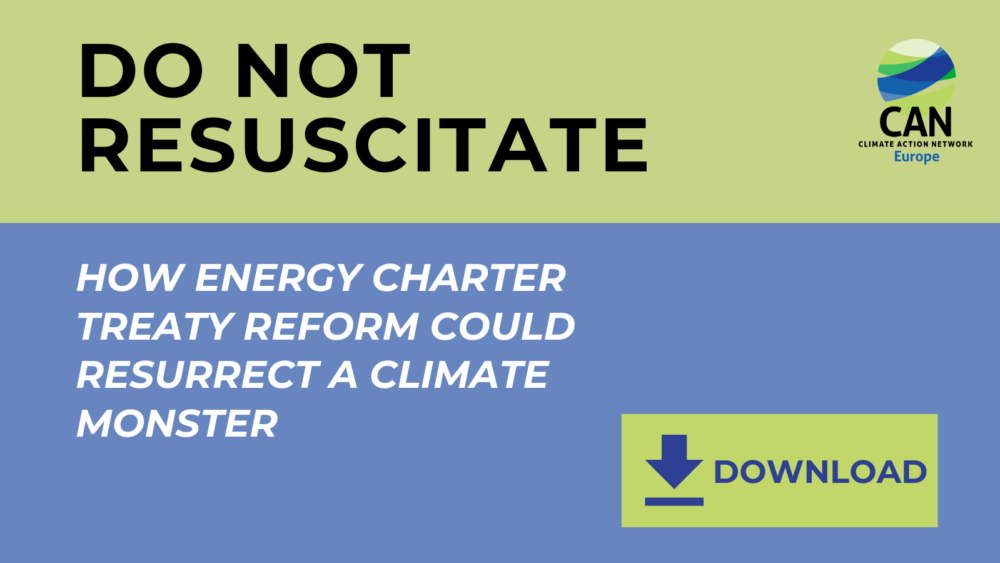Do not resuscitate: how the Energy Charter Treaty reform could resurrect a climate monster
July 2022
The Energy Charter Treaty (ECT) is an international trade agreement that protects foreign investors in the energy sector. It grants companies the power to sue governments through Investor-State Dispute Settlement (ISDS) for actions which harm their profits, including climate policies. On 24th of June 2022, an agreement in principle on ECT reform was concluded. Contracting Parties now have until the 22nd of November 2022 to consider whether to adopt the outcomes or withdraw from the Treaty. We have analysed the agreement in principle and come to the following conclusions:
Key points
- Reform of investment protection is insufficient to allow countries to pursue Paris-compatible climate action: fossil fuel assets continue to be protected for too long; Investor rights remain very broad; No
reform of the controversial Investor-State Dispute Settlement (ISDS). - Expansion to new technologies increases risks of compensation claims in relation to the transition to 100% renewable energy.
- Signing off on the reform would breathe new life into a dangerous agreement, making it likely that new countries will join and spread ECT risks to the global south.
- A coordinated withdrawal reduces overall risk of arbitration when compared to remaining in a reformed ECT.
LINKS:




